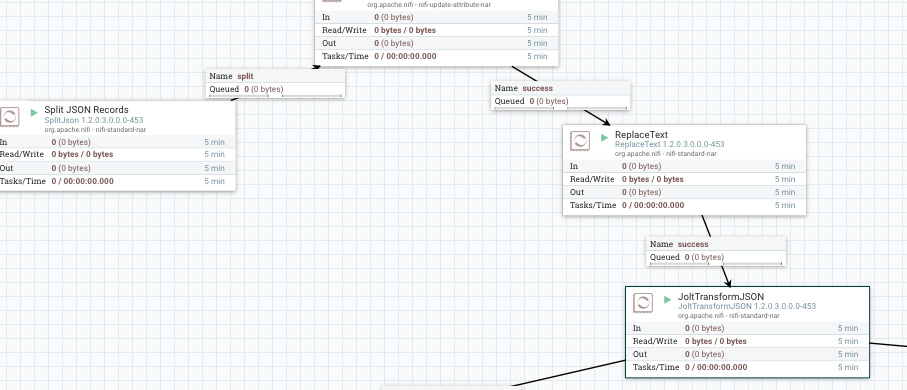Using Jolt in Big Data Streams to Remove Nulls
Learn how to use Jolt code within your big data streams to remove null values with some example source data and JSON code.
Join the DZone community and get the full member experience.
Join For FreeIn this article, we're going to learn about using Jolt code in your big data streams to remove null values.
Here's some JSON code for using Jolt in big data streams:
[
{
"operation": "default",
"spec": {
"address": "",
"somesensorvalues[]": {
"*": {
"sensor1": false
}
},
"startTime": "",
"onStartTime": "",
"markId": "",
"markName": "",
"stoppedTime": "",
"startTime2": "",
"powerSetting": "false",
"speed": 0,
"id": 0,
"city": "",
"state": ""
}
},
{
"operation": "shift",
"spec": {
"*": "&"
}
}
]To help you understand, here's some example source data:
{
"address" : "2000 Electric Avenue",
"somesensordata" : [ {
"sensor1" : null
} ],
"city" : "hightstown",
"deviceId" : 5454545,
"dateTime" : "2017-08-07 14:56:09",
"id" : 6831491,
"idle" : false,
"startTime" : null,
"onStartTime" : null,
"markId" : null,
"markName" : null,
"zipCode" : "08520"
}
Yeah, sometimes you really don't want to see any nulls!
The above Jolt script will copy all the values in a source JSON document to a destination. For the explicitly named variables like speed, it will replace nulls with the value on the right. So for speed, it will put in a 0 to represent a null value.
For embedded lists of values (likesensor1 inside of somesensorvalues array), the syntax is a bit different.
References
Opinions expressed by DZone contributors are their own.

Comments